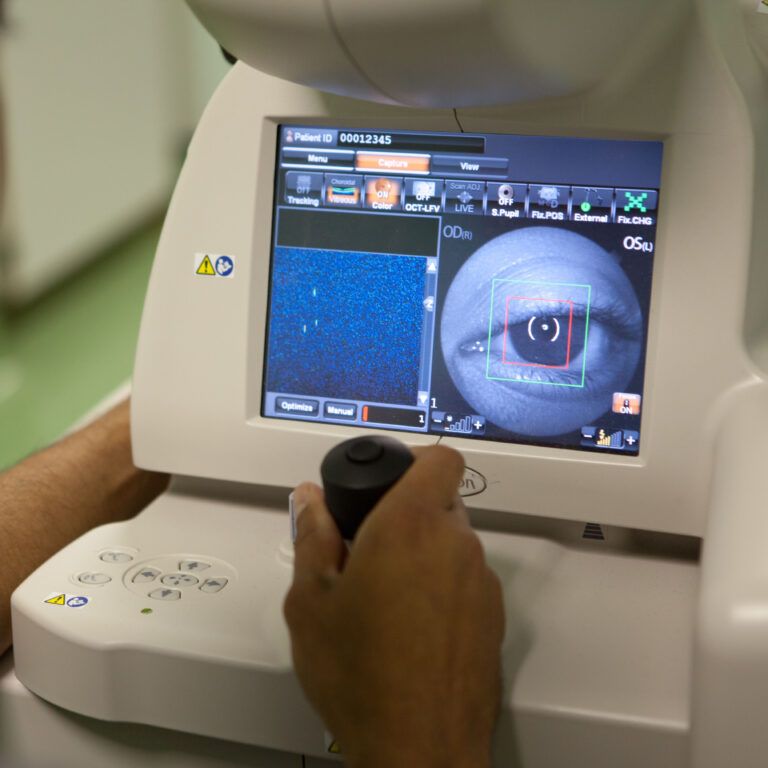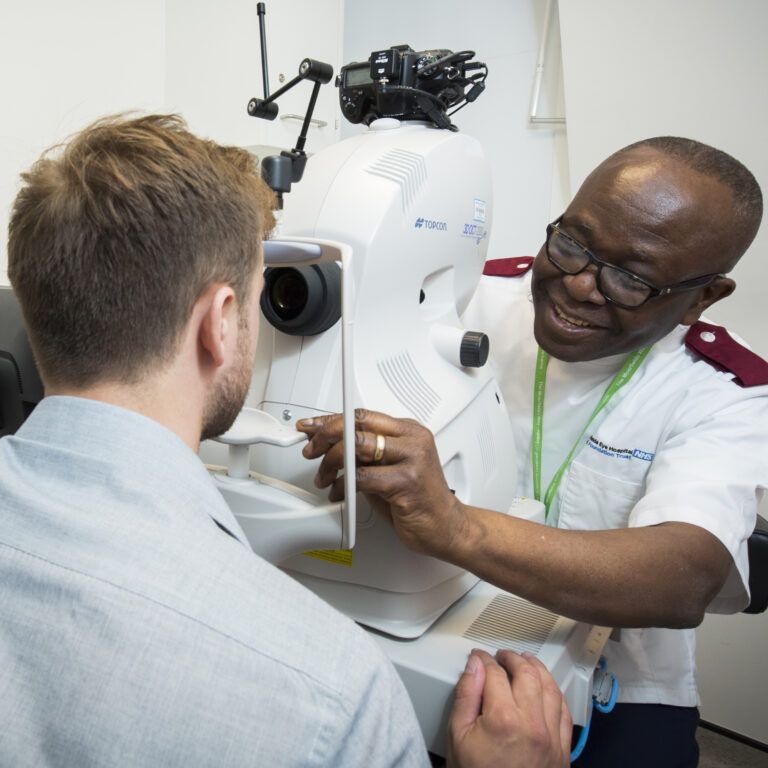Using artificial intelligence to detect common eye disease
The Challenge
Age-related macular degeneration (AMD) and sight loss as a result of diabetes are serious and common eye conditions that affect more than 625,000 people in the UK and over 100 million people worldwide. Treatment of these conditions puts a huge pressure on the NHS and this is increasing with more people living longer.
Colleagues at Moorfields Eye Hospital NHS Foundation Trust are using innovative ways of detecting eye disease earlier to improve outcomes for patients and create more sustainable ways of working in the NHS.

Facing the challenge
Digital scans are used by eye care professionals to correctly diagnose these conditions and determine the correct approach to treatment. These optical coherence tomography (OCT) scans are highly complex and take time to analyse, which has an impact on how quickly patients receive a diagnosis and can start treatment.
Recognising the potential to use cutting edge technology to explore and analyse data from eye scans, Moorfields announced a medical research collaboration with artificial intelligence company DeepMind Health in July 2016.
The collaboration is investigating how a form of artificial intelligence technology called deep learning could help to rapidly analyse eye scans, giving clinicians a better understanding of eye disease. As part of the project, deep learning will be applied to a set of one million anonymised eye scans to look for early signs of eye conditions including age-related macular degeneration and sight loss as a result of diabetes.
The project has the potential to revolutionise the way professionals carry out eye tests in the future and could lead to earlier detection and better treatment of common eye diseases.
PROGRESS HIGHLIGHTS
An initial methodology paper on the research was published in 2016 and early results are expected later in 2017.
This research is one of the initiatives covered by UCLPartners Academic Medical Centre for Eyes and Vision.

Professor Sir Peng Tee Khaw, Director of the National Institute for Health Research Biomedical Research Centre in Ophthalmology at Moorfields Eye Hospital and UCL Institute of Ophthalmology, said:
“Our research with DeepMind has the potential to revolutionise the way professionals carry out eye tests and could lead to earlier detection and treatment of common eye diseases such as age-related macular degeneration. With sight loss predicted to double by the year 2050 it is vital we explore the use of cutting-edge technology to prevent eye disease.”